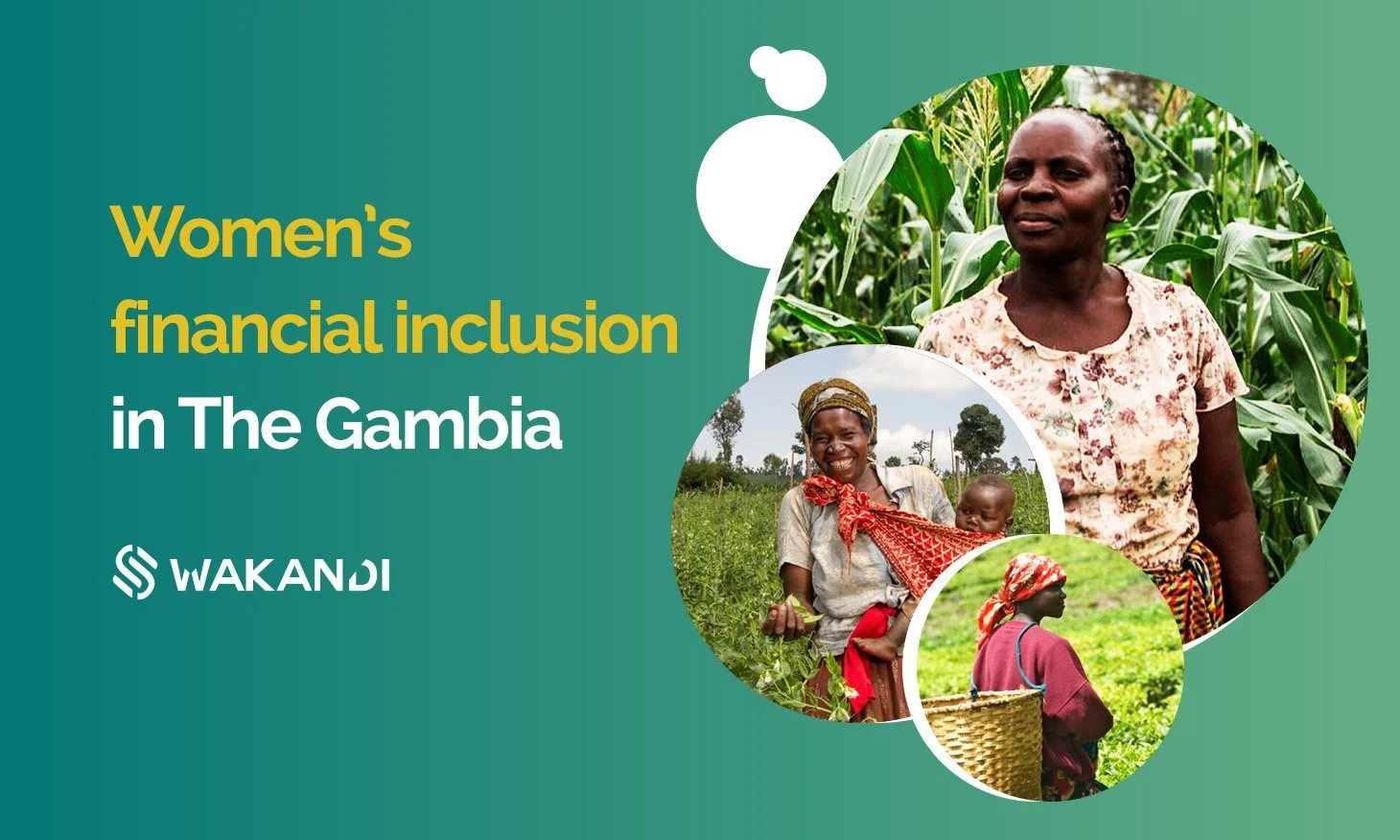Women’s financial inclusion in The Gambia: Challenges and solutions

Financial inclusion is considered a key indicator for the development and well-being of people in any country. It is more critical for women, who largely remain financially excluded due to poverty, gender inequalities and lack of education. In The Gambia, where 49% of the total population lives below the poverty line, financial inclusion can be a crucial tool to serve the underprivileged – who are mostly unbanked.
The Gambian government, with the Central Bank of The Gambia, are working to boost financial inclusion. In line with the National Development Plan, The Gambian government has started building a National Financial Inclusion Strategy (NFIS) in 2019. According to UNCDF’s survey report, Women’s Economic Empowerment in The Gambia 2019, this new strategy would improve access and usage of quality financial services, consequently ensuring inclusive growth and poverty reduction. The government has made significant progress, with improvements to liquidity management and streamlined operations.
However, it is essential to ensure that the benefits of policies are shared equally. Women – those who are poor and economically inactive – do not get proper access to quality financial services. Their interests also remain majorly excluded while creating economic policies and plans. Let us understand in-depth about various challenges related to women’s financial inclusion in The Gambia.
Challenges with women’s financial inclusion
Women in The Gambia have limited access to formal financial services. They mostly rely on informal channels to access financial services because of greater flexibility and convenience.
Far off branches
Difficulty in reaching banks is a challenge that people generally face in many countries in Africa. It becomes even more challenging for people situated in rural areas. They have to spend the entire day travelling to their branch, standing in queues, doing mundane paperwork and reaching back home. That is why women in The Gambia choose informal channels as they offer more convenience and flexibility over banks.
Economic inactivity
Women overall have a lower participation rate in formal employment and access to assets. According to the same survey report, 57% of women are economically inactive. Their overall participation in the workforce is lower than men. Men also tend to influence their access to financial services.
Lack of women-centred services
There are limited financial services targeted to the specific segments of women who are involved in business and product development. Most active financial services do not follow a tailored approach while offering services. Therefore, only a few products are customized to suit the specific requirements of women. Far off branches remain the main culprit as bank agents fail to listen to their customer needs.
Financial literacy and awareness
The same survey also reports lower education level and awareness of financial products and services compared to men. Only 5% of female respondents have already attended training on how to use financial services. The situation is no different for males. This proves the level of financial literacy and awareness is substantially low, and appropriate steps need to be taken.
Solutions
There is a solid need to drive progress on women’s financial inclusion in The Gambia. Improving education and awareness towards financial services can help them use banking services with better confidence. Technology can also be a critical tool in promoting the use of formal financial services.
Increase financial literacy and awareness
The government and financial organizations should take relevant actions to promote financial literacy amongst women. They can design and initiate programs to educate women on financial services and financial management. NGOs, schools, local groups, and other local groups can play an essential role in promoting financial literacy and awareness. It can provide women with the knowledge of various banking functions such as opening an account, sending and receiving money and access services.
Include women in financial inclusion strategy
There is a high need to create relevant opportunities to boost women’s financial inclusion in The Gambia. This can be done by building a suitable and adequate regulatory environment for women. It means that various regulations and strategies such as NFIS must cater to the needs and interests of women and support their progress.
Digital financial services ecosystem
Digital financial services can significantly improve access to financial services. This space might be nascent in The Gambia, but countries like Tanzania, South Africa, and Kenya are adopting digital solutions rapidly. Know how Wakandi is enabling digitization for SACCOs in Africa.
The introduction of new digital products targeted towards women can drive women towards formal financial services. Banks, telecom companies, and financial companies can build partnerships with tech companies to reach people in every corner.


Comments